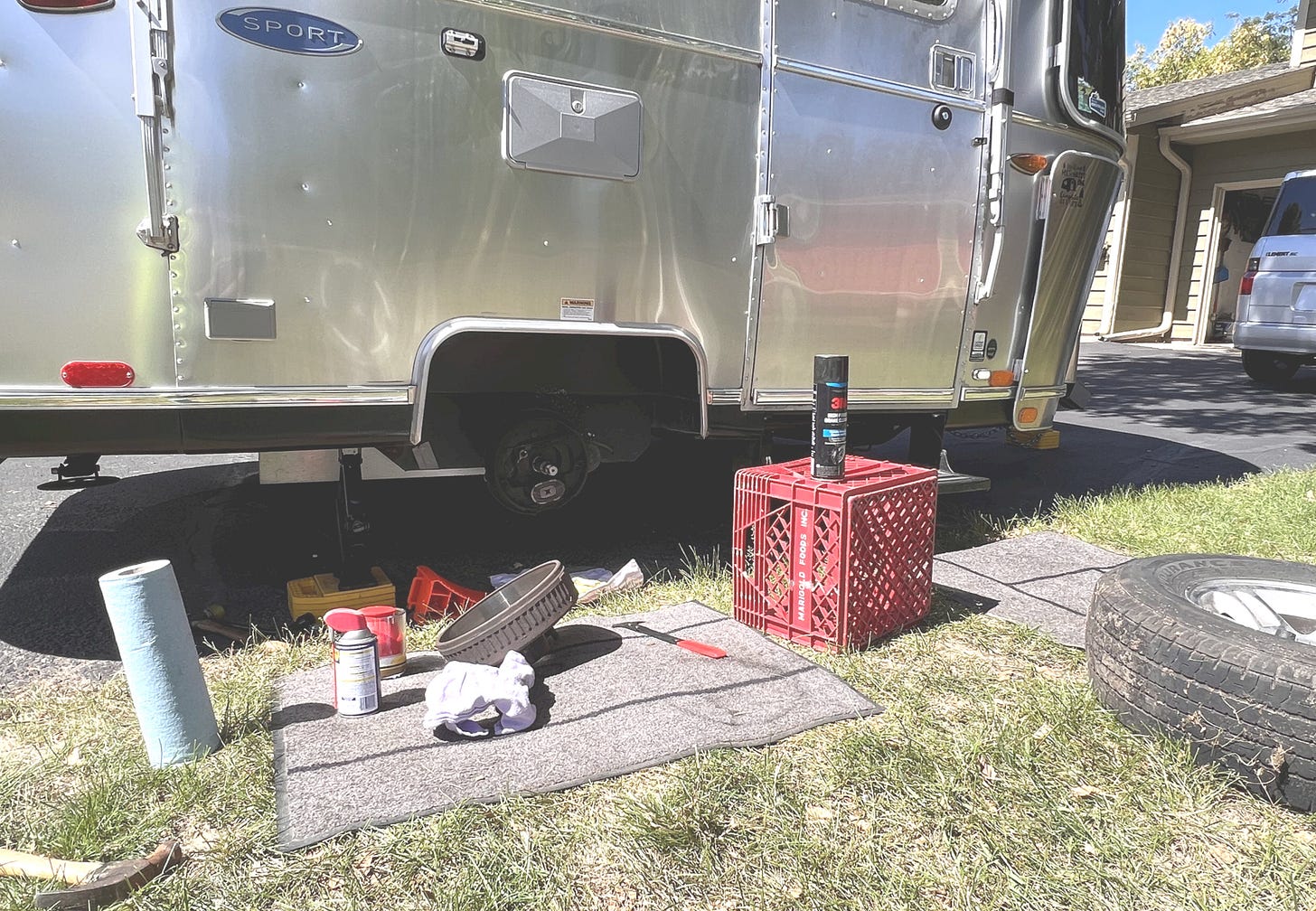Is how you approach mountain biking different from how you approach the rest of your life?
Maybe there's a way for each to benefit the other
Below is a scene from one of my projects last weekend: packing the wheel bearings on our RV trailer.
Last year, I approached the task with dread. I’d never done it before, I knew it was messy, and I tell myself that I’m not mechanically inclined. (See my answer to the question What have you told yourself or others that you're bad at, MTB-related or otherwise?) So I just wanted to get it over with as quickly as possible. But, of course, it took many hours; I made mistakes and was exasperated throughout.
But this year, I approached the task differently, as if I were about to practice a new MTB skill.
I first watched some how-to videos on YouTube until I found one by an author I could relate to and who broke up the task into small chunks. So instead of watching the entire video, I took my time, viewing each segment and implementing it.
The guy strongly urged purchasing a couple of inexpensive tools to make the job easier. However, he assumed that it was obvious how to use one of these tools and when I got confused, I took the time to find a video that explained it in detail.
I took breaks every 20 minutes to drink water (I was working in the hot sun) and stretch. I reminded myself that I was lucky to own a camper and be married to a woman who loved to camp in it.
When I finished and let down the jack to admire my work, I discovered I'd forgotten to insert the small ornamental hub inside the rim. Ordinarily, this would sap all my gumption, and I'd be angry at myself. This time, however, I smiled at my rookie mistake, took a break to have a snack, and returned for the 20-minute do-over job.
This project was the first deliberate case of my approach to mountain biking practice improving my approach to a task in a different area of my life.
Does the opposite occur?
I’ve just finished the sports motivation course in the Headspace meditation app. At the end of Day 6, Headspace co-founder Andy makes the argument that it does in this one-minute clip:
That segment was an eye-opener for me. Why?
I occasionally practice mindfulness of small actions (eating, walking, taking a shower) to quiet my noisy 'monkey brain' and enjoy the activity more.
I've also learned a meditation technique called 'noting,' which involves briefly labeling a distracting thought or feeling before returning to the object of focus.
For example, when I'm going for a walk in the woods and focusing on sensations, sounds, or sights, I frequently have thoughts about work that derail my focus.
As soon as I realize that I'm distracted (which sometimes can be a while), I note it ("Oh, I've been thinking about work. Let it go.”)
I used to think that having distracting thoughts every few seconds while trying to focus meant I was terrible at meditation or mindfulness. No longer. I now know that it's normal and that all I need to do is keep practicing getting better at noticing the distraction and returning to the object of focus.
I found this clever 90-second Headspace animation on the noting technique to be helpful:
My intention now is to:
Get better at focusing by practicing the noting technique for 2-3 minutes a couple of times per day during routine activities like eating, driving, brushing my teeth, etc.
Mentally frame those times as a way to improve my ability to focus when I’m practicing MTB skills.
Use the noting technique for short segments when practicing an MTB skill or riding a trail.
To be continued.



Excellent job getting your wheel bearings greased! It is a very messy job.
Thanks great advice I will try it